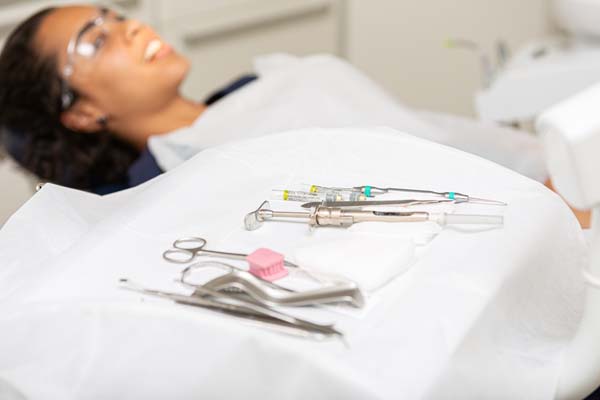Eating After a Tooth Extraction
A may be necessary if the tooth is too decayed to be repaired. After the tooth has been extracted, it is important to allow the area to heal completely. Eating the right foods can help speed healing and avoid any complications. Read on to discover the right foods for you.
Eating
The reason that dentists tell patients to avoid hard foods after a tooth extraction is because hard foods can dislodge the blood clot and cause more pain in the area. If the blood clot is dislodged, raw nerve endings will be exposed in the area. This can limit the amount of blood flowing to the area.
When eating foods that require some chewing, such as mashed potatoes, patients should try to chew on the side opposite from where the tooth was extracted.
Foods to eat after a tooth extraction
Patients should stick with soft foods after a tooth extraction. Depending on where the tooth was located and the condition of the surrounding teeth, the dentist will advise a patient on how long to eat soft foods. A few foods that patients can eat after tooth extractions include:
- Yogurt
- Smoothies
- Mashed potatoes
- Milkshakes
- Applesauce
- Pureed vegetables
- Cool to lukewarm soup
Because the cold can help minimize swelling, ice cream is a good choice. Patients should choose an ice cream without any nuts or other hard foods.
After a few days, patients can move on to foods that require a bit more chewing, such as scrambled eggs. Eggs are high in protein and can help the patient feel less hungry after a few days of yogurt and applesauce. It is important to make sure the eggs are not too hot.
Foods to avoid after a tooth extraction
Staying away from hard foods will allow the surgical site to heal. It is important for patients to avoid eating foods that could become lodged in the socket. This includes small foods such as seeds or pieces of hard food. Patients should also avoid using a straw after a tooth extraction. This includes both fast-food drinks with straws and water bottles with straws.
After the surgery, there may still be a hole where the tooth was. If it is being left alone, it will heal in a few months. While it is healing or before a replacement tooth is placed, patients should try to avoid lodging food in the area for a long time. This can cause bacteria to build up. Eating on the opposite side of the mouth and rinsing the mouth after every meal and snack can help keep food from lodging in this area.
Visit a dentist today
While a tooth extraction is never fun, it is important to extract teeth that are decayed. If these teeth are left in the mouth, the teeth can cause some serious health problems for the patient. Eating the right foods can help promote healing. Patients who have questions about eating after their tooth extraction should contact a dentist.
Request an appointment here: https://www.saidental.net or call Sai Dental Care at (707) 509-1146 for an appointment in our Santa Rosa office.
Check out what others are saying about our dental services on Yelp: .
Related Posts
An extraction is usually recommended as a last resort when a tooth is too damaged to be saved. The two main types of extractions performed by dentists are simple and surgical extractions. A simple extraction is performed when enough of the tooth is left above the gumline to pull it out with forceps. A surgical…
Failing to replace a missing tooth can have long-term adverse effects on your dental and overall health. It can change the natural shape of your facial structures and affect your smile's appearance. It can also make you more vulnerable to periodontal disease, which happens to be the top cause of adult tooth loss, according to…
Children are typically nervous during their first dental visit. A kid-friendly dentist can help children remain calm and relaxed during the visit by creating an environment that is friendly. They can also use special methods to keep them comfortable, such as allowing the child to listen to their favorite music or having their parent sit…
Same day dentistry options are helping people fit dental care into their busy and fast-paced lives. If you have been putting off dental work because you have a busy schedule, then a same-day dentistry may help. You may find that one or more of the procedures you have been putting off can be completed in…
